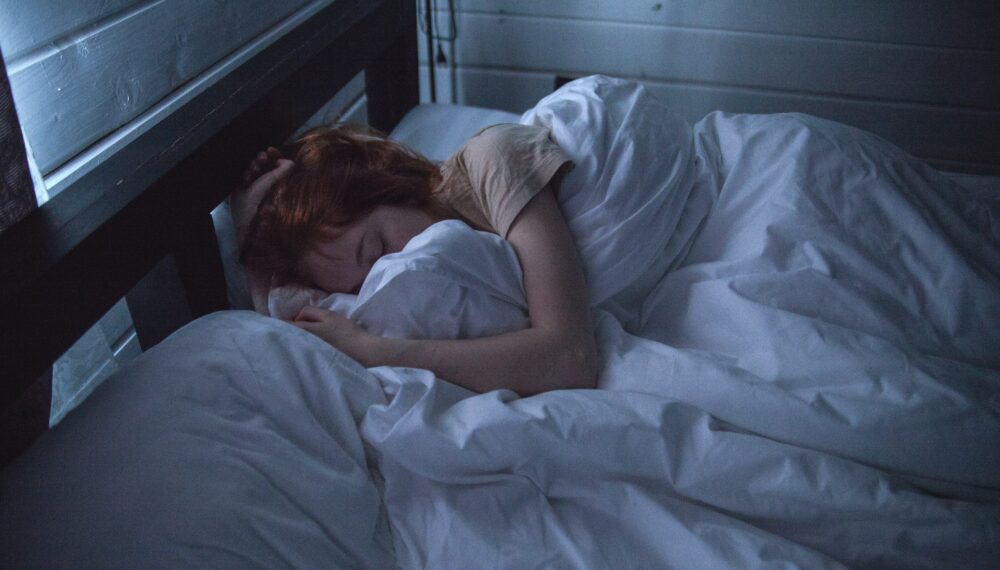Tinnitus and sleep disturbance
About the sleep cycle, effects of poor sleep and tips to help you have a restful night.
A disturbance to sleep patterns affects most of us at some stage of our lives. It affects all ages, including children, but is particularly prevalent amongst older adults.
Some people with tinnitus may find they have greater difficulty getting off to sleep. The shift from a relatively noisy daytime environment to the quietness of the bedroom can make the tinnitus noises more noticeable.
The sleep cycle
Sleep is a 24-hour cycle, so activities you carry out in the day will affect that night’s sleep. A normal night’s sleep has several stages, from light to deep sleep, and includes several awakenings. The first awakening usually occurs after just a couple of hours sleep. As you grow older, you experience less very deep sleep and more awakenings. Sleep becomes lighter and more fragmented and there is a tendency to nap during the day. Most people get about seven or eight hours sleep when it is all added up, but average sleep times vary enormously. Insomnia refers to severe and ongoing difficulty in falling and/or staying asleep. Generally, this means that the disturbance occurs at least three or four times a week and lasts for six months or more.

Tinnitus, sleep and waking
Many people with tinnitus do in fact sleep well and see sleep as a refreshing escape from tinnitus. Those people who sleep well do not seem to have ‘different tinnitus’ from those who have trouble sleeping.
The worries that you have about the length of sleep, or the effects of not sleeping, or about tinnitus generally, will probably have more of an impact on the quality of your sleep than the sound of tinnitus.
It seems most likely that you are woken up by other things, rather than tinnitus. Generally, people don’t remember their natural awakenings. But if you wake up enough to notice your tinnitus, you may be kept awake for longer and remember this the next day.
Why do we need sleep?
Surprisingly, the exact benefit of sleeping is unclear. Possibly it conserves or restores energy. People do tend to feel bad if they have not slept well, but the physical impact of sleep loss is not as clear cut as you might think.
Studies of people who have been deliberately deprived of sleep tend to do less well on some psychological tests. People often perform well on logical, deductive tests (like IQ tests) but perform more poorly when asked to do ‘executive’ functioning tasks that require more creative thinking.
These effects are seen after long periods with no sleep. They are reversed by relatively short amounts of sleep in the same way that the feeling of ‘jet lag’, caused by sleep loss or a disruption to the body clock, usually passes with a return to a regular sleep pattern.
The situation is different for people who have chronic poor sleep (rather than no sleep at all). Poor sleep may not have the devastating consequences that most of us fear. Many people perform very well on little sleep, in spite of feeling bad.
Worrying about sleep loss is one of the things most likely to keep it going and one of the things most likely to create stress that can further impact on your wellbeing – and your tinnitus. The stress associated with it may also be a major reason why sleep loss can make you feel so bad.
A vicious cycle
When people with tinnitus experience periods of sleep loss or poor sleep, it is usually accompanied by anxiety.
You may recognise the following pattern. In the quiet of bedtime, you become more aware of your tinnitus. This leads to unhelpful worrying thoughts (such as, “I’ll never be able to sleep!”). This creates a level of stress arousal (anxiety). This stress leads to not being able to sleep. As it becomes prolonged, poor sleep can increase your anxiety. It keeps you trapped in the vicious cycle of sleeplessness, worry and awareness of tinnitus.
Further reading
Overcoming insomnia and sleep problems: a self-help guide using cognitive behavioural techniques (2nd edition) by Colin A Espie (Robinson Publishing, ISBN-13 978-1472141415)
Sleepfaring: a journey through the science of sleep by Jim Horne (OUP Oxford ISBN-13 978-0199228379)
Living with tinnitus and hyperacusis (2nd edition) by Laurence McKenna, David Baguley and Don McFerran (Sheldon Press ISBN-13 978-1529375350)
Help and support
Our Tinnitus Support Team can answer your questions on any tinnitus related topics:
- Telephone: 0800 018 0527
- Web chat: – click on the icon
- Email: helpline@tinnitus.org.uk
- Text/SMS: 07537 416841
We also offer a free tinnitus e-learning programme, Take on Tinnitus.
Images:
Meditation photo by Karolina Grabowska on Pexels.
